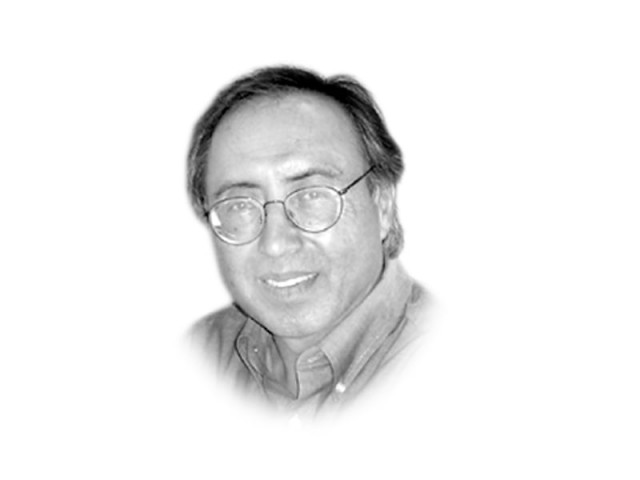A collapsing system
At the grassroots level, I see a revolution of rising frustrations with the system from Karachi to Gilgit-Baltistan

A collapsing system

Justice, rule of law, merit or just governance, have simply become things of the past. True, there are departments of the government from top to bottom, functionaries in place with all the pomp and show and people going by their lives as best as they can in the given circumstances. The people at the lower rung of society fare the worst, and more of them are in graver intensity as you move away from Lahore, Karachi, Quetta and Peshawar. The result is that people have lost faith in the government, their political representatives who they sometimes vote for, and what they may call the system.
There is a big disconnect between the bureaucracy and the provincial and federal political bosses above them and the people. The ‘system’ at the district and local level doesn’t function according to rules and procedures in the books any more. If you are not the one who is connected through some web of power relations to the bureaucracy or the political elite, either you have to find such a connection or you have to find a tout to get what is your right. In the first place, the citizen loses his autonomy, and in the second, he must come up with ‘reasonable’ amount of bribe. In a nutshell, bribes and influence-peddling have replaced the system or one might say, it is what the system is. When you confront people on what is going on and what they are doing, the refrain usually is: this is Pakistan, everything can happen here. Imagine, this is the level of trust in the rule of law. Sad, but the reason is that it doesn’t exist.
My explanation of the social disconnect of political power is that the ruling groups have lost touch with reality. Either greedy sycophants surround them, or they are just too arrogant and full of themselves that they believe they can get what they want and they don’t need to repair the failed system. Actually, the failed system works to their ends — a broken rule of law regime and personalised power relations keep everyone in the system — bureaucrats and the political class remaining high on power and rich on public monies.
This is absolutely an unnatural state of affairs for any society, especially for a country like Pakistan, with an exploding youthful population and a rising gap between the popular expectations and what the dysfunctional system can possibly deliver. This cannot last for too long, as it never has in similar circumstances anywhere in the world.
At the grass roots level, I see a revolution of rising frustrations with the system from the precincts of Karachi to the furthest points in Gilgit-Baltistan. This is the reason why people are falling back on narrow identities, like sect, tribe and caste to survive or access power. It is also a reason for militancy, extremism and political violence.
A public and youth in general, driven by anger and hopelessness, may have no or very little commitment to any system — they may rather pull it down, sooner than later.
Tailpiece: This is a preface to polarised society, agitation and violence.
Published in The Express Tribune, December 10th, 2014.
Like Opinion & Editorial on Facebook, follow @ETOpEd on Twitter to receive all updates on all our daily pieces.














COMMENTS
Comments are moderated and generally will be posted if they are on-topic and not abusive.
For more information, please see our Comments FAQ